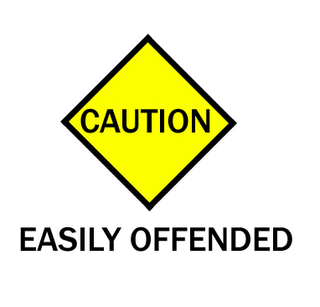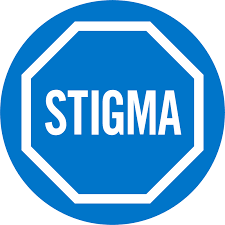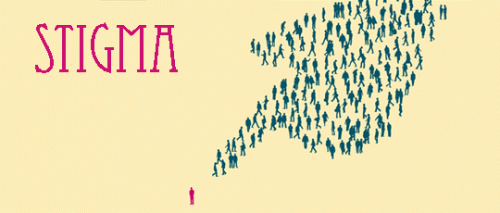I’ve been thinking about the modern, trendy culture of taking offence. To be honest, this isn’t a new area of concern for me. It’s something that’s been irritating me for some time. I’ve never really understood how anyone can justify feeling offended by another person’s opinions. I mean – stupid people, ill-informed people, even just downright nasty and hateful people have always been with us but that’s no reason for me to be offended. Their bad behaviour or hateful speech says much more about them than it ever could about me. There might be a case for them to feel embarrassed or ashamed but not for me. That’s their problem – not mine.
Yet many people seem to think it’s appropriate to be offended just because somebody else expresses a different opinion. I don’t agree. Even if that person expresses opinions about me. There’s a wonderful Buddhist maxim which goes…
“Your opinion of me is none of my business’”
I won’t say I’m ‘enlightened’ enough never to care what other people think about me but I will say that the more I concern myself with their opinions the more likely I am to be unhappy. Where’s the fun in that?
So don’t expect to catch me being offended by your insults because I know that what you say just reflects back to you and exposes aspects of your own character that a wiser man might prefer to keep to himself.
Even worse than taking offence at what people say about us is the habit of taking offence at what other people say about others. This is a growing trend in our society. People get offended on behalf of other people, regardless of whether or not that other person would actually care. That’s just crazy!
I’m a mental health nurse and as such I notice when people get offended on behalf of people with mental disorders. It’s an attentional thing. We notice the things that we’re connected to. So many people are keen to express offence on behalf of people with schizophrenia, with personality disorder, with depression or whatever else comes up in conversation without once stopping to consider how the people involved might actually feel about it.That’s notbto suggest that we shouldn’t fight against stigmatisation. I’ve done that myself, for example when complaining about Halloween costumes depicting ‘psycho’ killers. But that’s not the same as closing down all discussion.
People with diabetes don’t get offended when others mention diabetes.
People with cancer don’t get offended when oncology is the topic of conversation
And as a rule people with PTSD aren’t offended when traumatic stress disorders are mentioned. In fact I know lots of people who think it’s ridiculous to take offence at the mention of a diagnosis. They have no problem with discussions about their conditions – often very challenging discussions that often even cast doubt on the reliability, accuracy or even existence of the condition itself. That’s the nature of psychiatry, folks. We know for sure far less than most people think we do.
When you get offended on behalf of others all you achieve is to create the impression that the other person is more sensitive than they really are. You make them appear ‘precious’ or a ‘snowflake’ who just isn’t strong enough to handle everyday conversation – and let’s face it – everyday conversation covers a very wide range of comments and they’re not always pleasant – but they are part of life’s rich tapestry and most people are more than capable of seeing through the bullshit of liars and of hostile, insulting malcontents. By presuming that the other person can’t handle normal life you do them no favours. All you really achieve is to increase stigma against an already stigmatised group. Well done you!
So for pity’s sake – stop taking offence, either on your own behalf (that’s just a pointless attempt to close down conversation) or especially on behalf of other people who most probably won’t thank you for masking them look like over-sensitive snowflakes. People with mental health problems have enough to deal with without you adding to the stigma they face.





That’s exactly what I needed to read. I was trying to figure out why I didn’t share in those feelings and why I resist some of the mass panic on social media. I am an optimist and I believe things will work out, even if they are tough for a long time. Thank you for articulating what I was intuiting.
LikeLiked by 1 person
You’re very welcome. Glad it made sense. I’ve never really ‘got’ the whole ‘being offended’ thing, even when I was a kid. It just seems so contrived to imagine that coming across people who may insult, dislike or disagree with us should affect our own sense of well-being. After all, it’s not as though we didn’t already know they existed. And to take offence on behalf of others is just patronising, over-involved paternalism in my view.
LikeLiked by 1 person
I do think there is a slight irony in you getting offended about people being offended.
LikeLiked by 1 person
Except I’m not offended. I get irritated by it but not offended. There’s a difference. Irritated people tend not to assume the right to silence others. Nor do they get irritated for others.
LikeLike
Irritated by people having opinions about things. I dont see much of a difference. If you don’t assume the right to silence other, let people be offended by what they want, surely?
LikeLiked by 1 person
By all means be offended. You can be offended by anything you like but why would you want to? Especially, why be offended for others who may well not give a hoot?
LikeLike
I genuinely don’t know why people would want to, but they do and thats ok. Its ok to voice an opinion and it’s ok to voice an opinion of an opinion, and so on. Discourse is rarely a bad thing though. Really enjoyed reading your post though – I dont want you to think Im getting offended about someone who is irritaed about people who are offended for people who may or may not be offended.
LikeLiked by 1 person
Excellent and disarmingly circular response. Splendid stuff. 🙂
LikeLiked by 1 person
…but I like the post!
LikeLike
Glad to hear it. Thanks 🙂
LikeLiked by 1 person